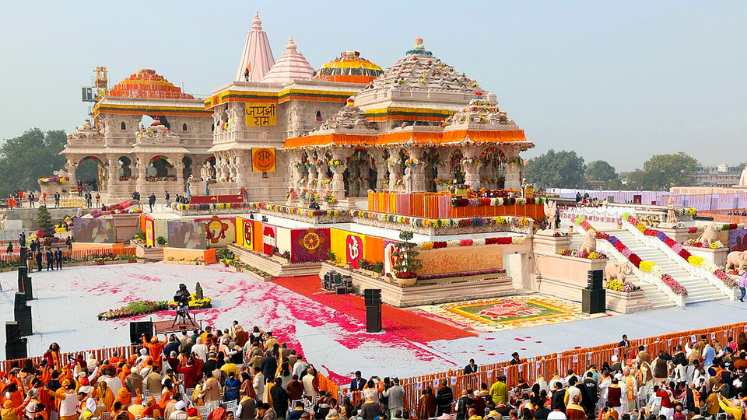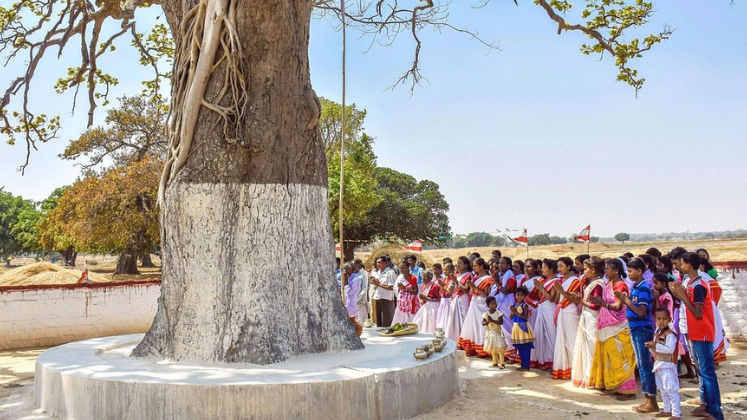The use of ‘religiophobia’ and ‘Islamophobia’ have been at odds during recent United Nations assemblies. Muhammad Ahmad Khan and Shafaq Zernab provide an analysis of India’s contribution to the debate.

This year, on the 15th March, the International Day to Combat Islamophobia, Indian Ambassador Ruchira Kamboj abstained from voting on a draft United Nations resolution aimed at combatting Islamophobia.
The resolution was brought forth by Pakistan and co-sponsored by China at the UN General Assembly. The resolution condemned the incitement of hostility or any sort of violence against Muslims around the world. UN Secretary-General Antonio Guterres was also requested to appoint a United Nations special envoy to combat Islamophobia.
Ambassador Kamboj premised that despite condemning the acts of discrimination against Islam, it is imperative to acknowledge that the perils of ‘religiophobia’ extend beyond the confines of the Abrahamic religions. “While the issue of Islamophobia is undoubtedly significant, we must acknowledge that other religions are also facing discrimination and violence. Allocating resources solely to combat Islamophobia, while neglecting similar challenges faced by other faiths, might inadvertently perpetuate a sense of exclusion and inequality,” she added.
Ambassador Kamboj forewarned that the adoption of such resolutions could potentially fraction the UN along religious lines and deviate the organisation from its course of unity and harmony. She reiterated India’s unwavering commitment to combat all forms of religiophobia. Despite her petition, 193 UN member states adopted the resolution, with none voting against and 44 states opting for abstention, including India, Brazil, France, Germany, Italy, Ukraine, and the UK.
Indeed, there are threats to other religions as well, but on the day to combat Islamophobia, India’s move highlights its political ambitions to counter any resolution presented by Pakistan, and any in favour of Islam. To verify what the Indian representative mentioned at the international forum, it is crucial to start with the religious dynamics in India itself. Substantial evidence over the decades shows the undeniable reality of rampant Islamophobia widespread throughout India. Not only are these threats to Muslims supported at the societal level, but state-backed entities are mostly found engaged in such incidents against Muslims.
Instances of hate speech have been instigated over time in India. Meticulous data gathered by the India Hate Lab Report documented nearly two anti-Muslim hate speech events per day with a total of 668 such instances reported. 63% of these events even referred to Islamophobic conspiracy theories. These occurrences peaked during the political campaigns of the BJP between August and November of 2023. A total of 43% of hate speech incidents were recorded in top-ranking states like Maharashtra, Uttar Pradesh, Madhya Pradesh, Karnataka, Rajasthan, and Gujarat. Seven people died and over 70 were injured in the Nuh region of Haryana in August 2023. Five Muslims were killed in Haldwani, Uttarakhand while protesting against the demolition of a mosque and religious school in town.
In the first half of 2023, Hindutva Watch documented 255 incidents of hate speech calling for violence and socio-economic boycotts against Muslims. These statistics present a compelling narrative that 80% of the incidents occurred in the states governed by Prime Minister Narendra Modi’s BJP.
Muslims are blamed for everything from the country’s large population to the spread of coronavirus. In April 2020, a congregation of Muslims attended a gathering organised by Tablighi Jamat in Delhi. It sparked a cluster of Covid-19 cases and escalated quickly into an Islamophobic campaign. The BJP labeled it a “super-spreader” event. Incendiary headlines such as “Save the country from Corona Jihad” were trending on news networks and social media. Nearly a thousand people were charged, but the courts later released the prosecuted preachers who were “maliciously detained” under government directions.
According to a report issued by Amnesty International, since April 2017 ten Muslim men have been lynched or killed in public. In Pusesavali village of Maharashtra, an angry Hindu mob attacked a mosque, leading to the death of a 31-year-old engineer, Nurul Hasan Shikalgar.
Moreover, a report issued by Human Rights Watch documented a tragic incident during the Hindu festival of Ram Navami. Hindus equipped with weapons passed through Muslim neighborhoods shouting anti-Muslim slogans. Other incidents involved attacks on Muslim men suspected of cow theft, elopement, or alleged relationships with Hindu women in various states including Assam, Jharkhand, Rajasthan, and Uttar Pradesh. Lynchings and hate speech against Muslims are common, with 36 Muslims killed in attacks between May 2015 and December 2018, according to Human Rights Watch. One in three posts in over 5,000 Indian WhatsApp groups incites fear of Muslims and Islam. A Hindu mob burned a 113-year-old madrassa library with 4,500 books and ancient scriptures in the town of Bihar.
Huntington once said, “people define their identity by knowing who they are against”. Unfortunately, this is what happening in Modi’s India. From vandalising eateries in Gurugram, Haryana, to stoking anti-Muslim hate using Hamas. Withdrawing scholarships for Muslims, enacting discriminatory laws like the Citizenship Amendment Act and the Uniform Civil Code which bans hijab, and passing anti-conversion legislation are all state-backed actions against Muslims. And not just Muslims, other religious groups including Sikhs and Christians are mostly suppressed in India itself.
Religiophobia is growing around the world. Next time, Pakistan must also present a resolution to combat religiophobia and ask the UN to take action against the countries found most involved in such heinous attacks against religious minorities. India would surely find itself at the helm of repercussions.






Indeed a very good analysis of India’s approach to promoting anti-Muslim acts and policies under Hindutva leadership. It is also contradictory to India’s global ambitions and reflects its role as a state-influencing actor rather than a system-determining one, often abstaining from voting on resolutions rather than making decisive choices and taking clear sides.